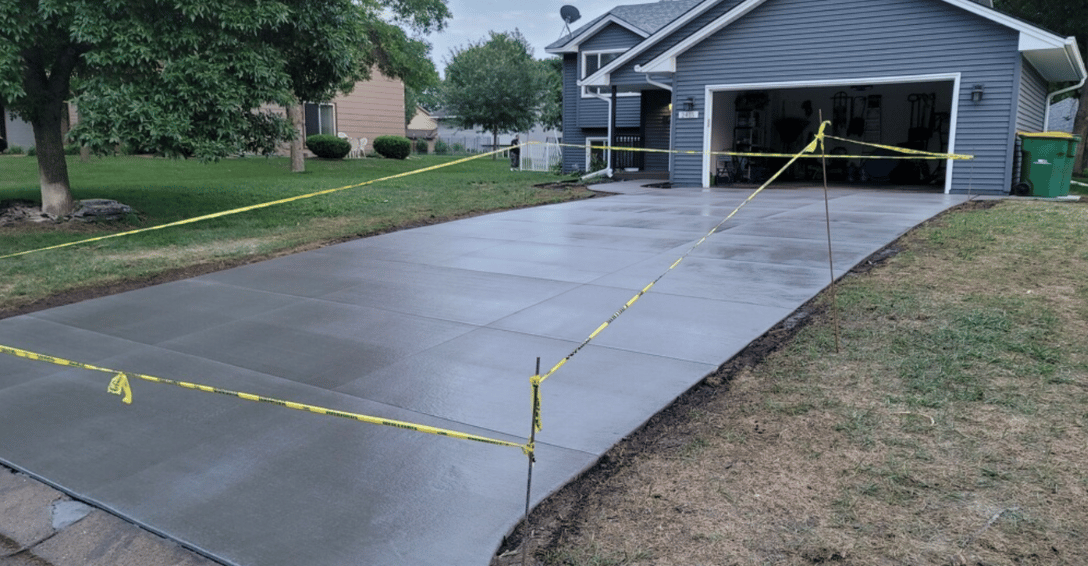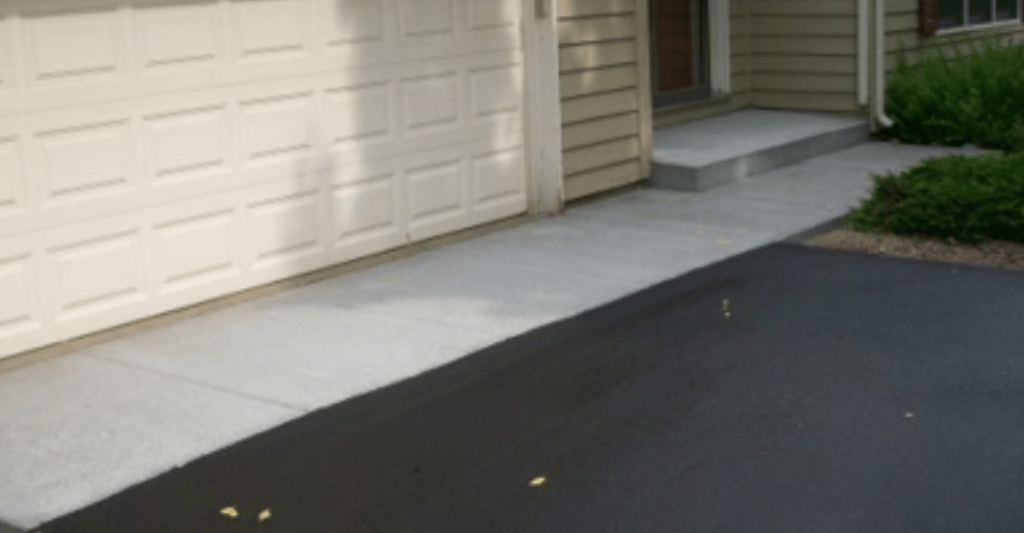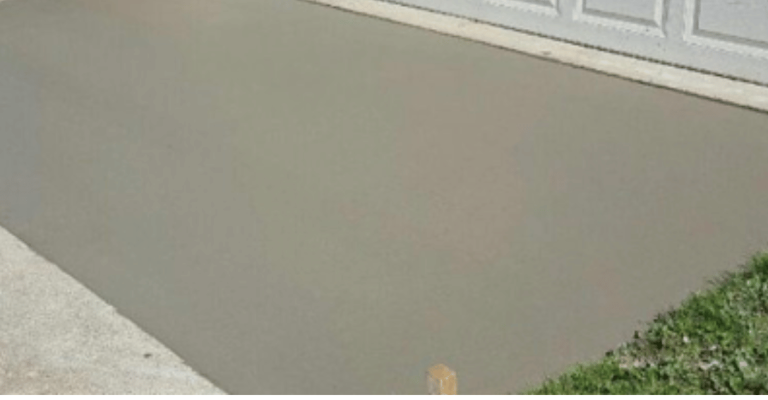Concrete Apron Vs Asphalt Apron
When it comes to choosing between a concrete apron and an asphalt apron, you’ve got some pondering to do. Sure, you know concrete tends to last longer, but asphalt might be gentler on your budget upfront. Do you go for the long-term investment, or opt for the immediate cost-saving? It’s not as clear-cut as you’d think. There’s the maintenance, repair frequencies, even the climatic conditions to contemplate. So, what’ll it be? Sit tight, because we’re about to unravel this puzzle for you.
Understanding Concrete Aprons
While you may not realize it, concrete aprons play an important role in managing the flow of water around your property, offering a durable and long-lasting solution to prevent soil erosion and protect your landscape. These essential structures, typically situated at the intersection of driveways and streets, function as a barrier, redirecting rainwater and runoff away from your home and into appropriate drainage systems.
Now, let’s dig deeper into the composition and benefits of concrete aprons. They’re made of a mixture of cement, water, and aggregate materials – a reliably hardy combination that can withstand heavy loads and extreme weather conditions. Resilience is a key attribute here; concrete doesn’t crack easily under pressure or deteriorate rapidly over time, providing you with a dependable, low-maintenance solution.
Moreover, concrete aprons are customizable, allowing you to choose the texture, color, and finish that best complements your property’s aesthetic. This versatility fosters a sense of belonging, as you’re able to seamlessly integrate functionality with personal style. This way, concrete aprons don’t just serve a practical purpose, they also enhance the overall appeal and value of your home.
Asphalt Aprons Explained
Now, shifting our attention to asphalt aprons, it should be highlighted that they offer a different set of advantages and characteristics when compared to their concrete counterparts. Let’s explore the specifics.
Asphalt aprons, often known as blacktop, provide a smooth and stylish aesthetic that can greatly enhance the curb appeal of your property. It’s a flexible material, which means it can easily adapt to the ground’s contours and withstand cracking under significant pressure. This flexibility is particularly beneficial in areas experiencing dramatic temperature changes, as it allows the apron to expand and contract without suffering damage.
Regarding installation, asphalt aprons require a shorter curing period than concrete, allowing for quicker use. Moreover, the dark color of asphalt naturally absorbs and retains heat, assisting in snow and ice melt during winter months – a characteristic you’ll certainly appreciate if you’re in a colder region.
However, maintenance-wise, asphalt aprons typically need more frequent seal-coating to maintain their appearance and performance. While this may appear to be a downside, it’s a simple process that guarantees your apron endures and looks fantastic for years to come.
Comparing Longevity and Durability
So, how do concrete and asphalt aprons stack up when it comes to durability and lasting power? As a member of our construction community, you know that these factors are crucial when selecting materials for your projects.
Concrete, typically, is renowned for its lasting power. You can expect a well-constructed concrete apron to last for about 30 to 40 years. This durability owes much to concrete’s resistance to weather conditions and heavy loads, a key aspect when designing driveways or loading docks.
On the other hand, an asphalt apron’s lifespan tends to be shorter. Generally, you’re looking at around 15 to 20 years. Asphalt’s flexibility allows it to withstand minor ground movements better than concrete, but it’s more susceptible to damage from heavy loads and harsh weather.
However, both materials’ lasting power does depend significantly on their installation quality. Poorly installed aprons, be they concrete or asphalt, won’t last nearly as long.
Ultimately, the choice between concrete and asphalt will hinge on your specific project needs, including budget, usage, and aesthetics. As always, you’re part of a community dedicated to making the best, most informed decisions in construction.
Maintenance and Repair Differences
In evaluating the differences between concrete and asphalt aprons, understanding the varied requirements for their maintenance and repair is essential.
Concrete surfaces, being more durable, require less frequent maintenance. However, when repairs are needed, it’s often a more involved process. You’ll see issues like cracks which can widen over time if neglected, requiring patching or even full replacement of sections.
Asphalt, on the other hand, demands more regular maintenance due to its softer composition. You’re looking at routine seal-coating every two to five years to prevent water penetration and oxidation. While this might seem burdensome, remember that asphalt repairs are typically simpler and less costly. They often involve filling potholes or patching cracks, tasks that can be performed quickly with minimal disruption to the use of the apron.
Therefore, your choice between concrete and asphalt will hinge on your capacity for regular maintenance and the extent of repairs you’re willing to undertake. Both materials have their pros and cons. The trick is to understand your specific needs and constraints before making the final decision.
Just remember, proper maintenance and timely repairs can significantly prolong the lifespan of both concrete and asphalt aprons.
Cost Analysis: Concrete Vs Asphalt
Having evaluated the maintenance and repair factors, let’s shift our focus to another important aspect – the cost comparison between concrete and asphalt aprons.
Now, it’s important to understand that both materials have distinct cost profiles, each coming with their own set of financial implications.
The initial cost of installing an asphalt apron is typically lower than that of a concrete one. You’ll find that asphalt materials and installation are generally more cost-effective. However, this initial cost advantage may be offset in the long run because asphalt requires more frequent maintenance and repair.
Concrete, on the other hand, tends to be more expensive initially. The material itself costs more, and the installation process is more labor-intensive, which further drives up the cost. But it’s important to note that concrete often proves to be the more economical choice over time, given its superior durability and lower maintenance needs.
Therefore, your choice between concrete and asphalt should take into consideration not just the upfront costs, but also the long-term expenses associated with maintenance and potential repairs.
You’re part of a community of prudent decision-makers, and this detailed cost analysis aims to support you in making the most informed choice.
Frequently Asked Questions
What Is the Environmental Impact of Concrete and Asphalt Aprons?
You’re considering the environmental impact of two materials. Concrete’s production generates a substantial amount of CO2, making it a less environmentally friendly option.
Asphalt, on the other hand, emits harmful pollutants during its production. However, it’s recyclable, reducing its overall impact.
It’s essential to weigh these factors when choosing materials, ensuring you’re not only meeting your needs, but also contributing positively to the environment.
Can I Install a Concrete or Asphalt Apron Myself or Do I Need a Professional?
Sure, you’re capable of installing either a concrete or asphalt apron yourself. It’s a challenging task, but with the right tools, materials, and know-how, it’s something you can accomplish.
However, it’s often better to hire a professional. They’ve the experience and expertise to guarantee a quality job that’s durable and looks great. It’s an investment in your property’s longevity and aesthetic appeal.
Ultimately, the choice is yours.
How Does Weather Affect the Longevity of Concrete and Asphalt Aprons?
Weather plays a significant role in the longevity of your driveway. Extreme temperatures can cause both concrete and asphalt to crack. In hot weather, asphalt can soften and deform. Meanwhile, concrete doesn’t fare well in freezing temperatures and may crack from frost heave.
Regular maintenance, like sealing cracks for asphalt and using a quality sealer for concrete, can help protect your driveway from weather-related damage. Always check the weather forecast before starting any repair work.
What Are the Aesthetic Differences Between Concrete and Asphalt Aprons?
You’re probably wondering about the aesthetic differences between two materials.
Well, concrete offers a clean, modern look and can be stained or stamped for a unique finish. It’s also light in color, which can complement your property.
On the other hand, asphalt has a rich, dark color that can hide stains better. However, it lacks the customizability of concrete.
It’s all about what fits your style and property best.
Are There Any Special Considerations for Using Concrete or Asphalt Aprons in Commercial Settings?
In commercial settings, you’ve got to take into account a few extra things. Concrete, though more expensive, can withstand heavier loads, making it ideal if heavy vehicles frequent your property. It’s also less prone to damage from oil or gas spills.
Asphalt, on the other hand, is less costly and quicker to install, but it requires more maintenance. It’s important to evaluate your needs before deciding. Both options have their pros and cons.



